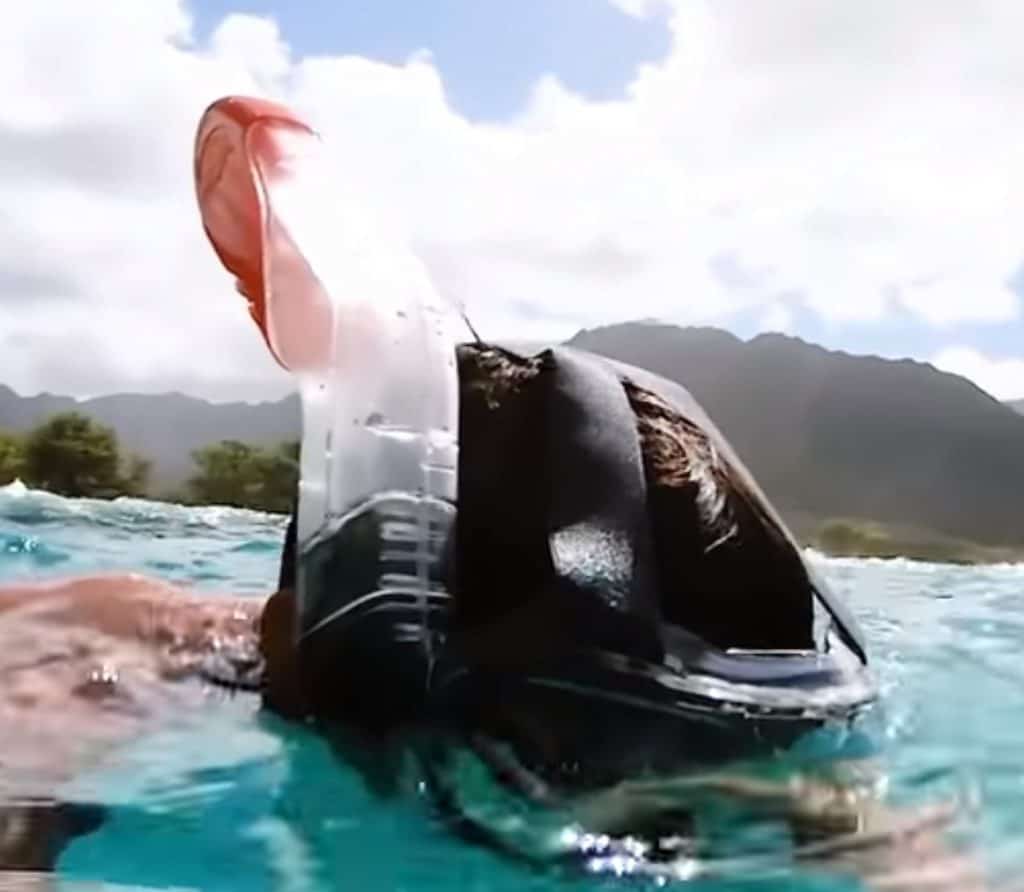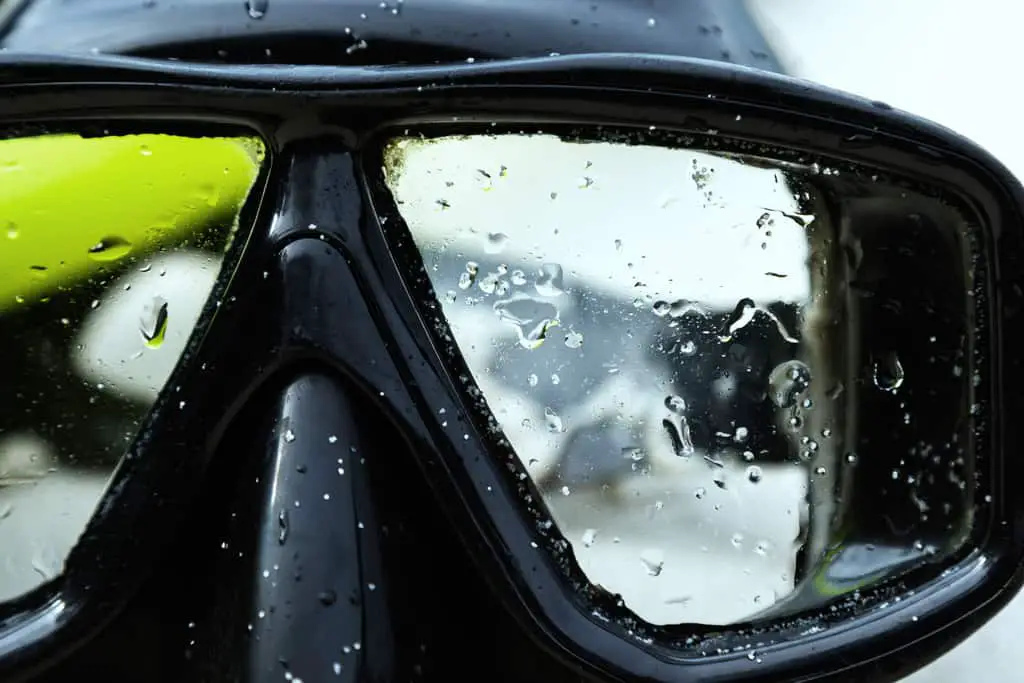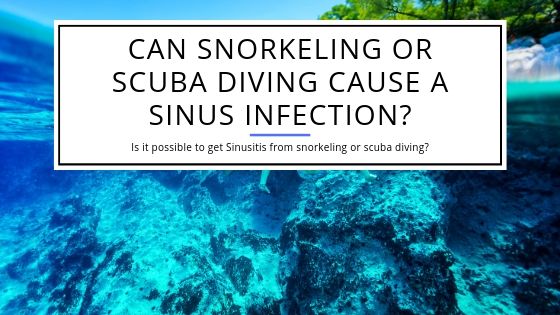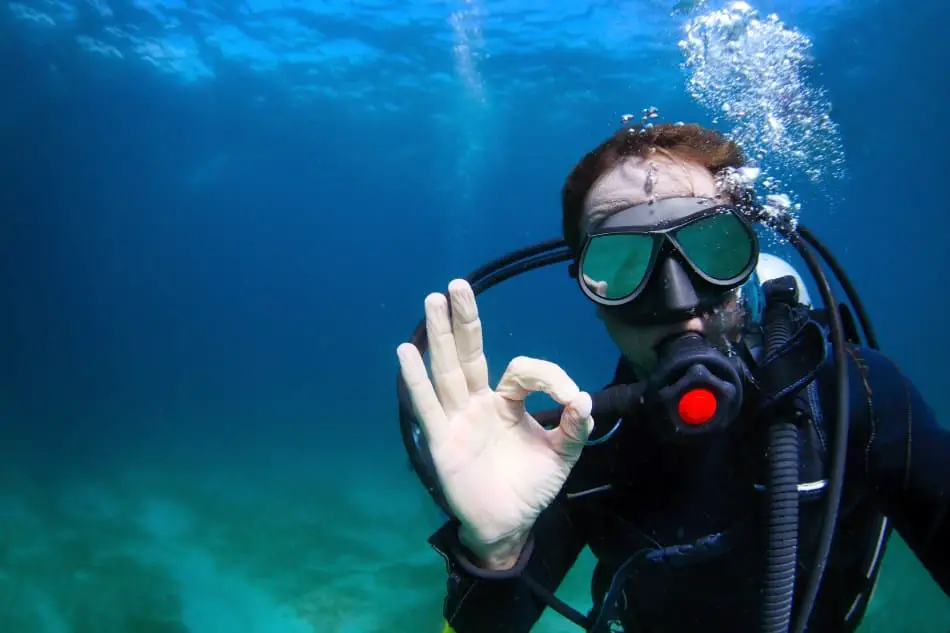Can Snorkeling or Scuba Diving Cause a Sinus Infection?
We’ve all occasionally inhaled a chockfull of salty water when we’re out in the ocean. Whether it involves breathing through a snorkel tube or using air from a scuba tank, water sports require you to regulate your breathing to a great extent.
Can snorkeling or scuba diving cause a sinus infection? Yes, under certain circumstances it can happen. It’s unlikely to happen if you are healthy when you start out with snorkeling or diving. However, if you are sick already or can’t deal with the higher pressure when scuba diving then take it slow and enjoy the day at the beach instead of in the water!
While breathing in the water may be tricky, the real cause for concern would be if this led to sinus infections. Sinus infections range from a case of bad breath to breathing difficulties. Let’s dive in to see what role snorkeling or scuba diving play in causing sinus infections.
Why Would Sinuses Be Affected by Scuba Diving or Snorkeling?
Generally, divers and snorkelers who already have symptoms of developing a sinus infection or have a weak immune system (due to an illness, etc.) are more susceptible to sinus infections when they get into the ocean.
There are a number of ways these water activities affect your sinuses:
Underwater Pressure
Changes in pressure can greatly impact your sinuses. When you’re diving underwater, the pressure increases by around ½ pound for every foot (it also decreases at the same rate when you are ascending).
Increasing pressure can disrupt your sinus canal and cause sinus blockage. This eventually leads to the growth of bacteria because of trapped mucus and appears in the form of a sinus infection.
The Science Behind It
Based on the laws of physics, as pressure increases, volume decreases. In diving terms, this means that as pressure increases during your descent, the volume of gases in your body decrease proportionately. However, it is vital that this gas is distributed evenly through your body.
For this equal distribution to happen, you need to be free of any sinus or nasal infections. Your throat and nose should be functioning completely normally. Even the slightest disturbance can put you at risk of undergoing barotrauma.

What is Barotrauma?
Barotrauma is an injury which usually affects your ears or lungs and is caused by a change in environmental pressure. There are a few ways to equally distribute the pressure in your ears to avoid sinus infections due to snorkeling or scuba diving:
- Hold your nose as you breathe out. This can help you avoid front sinus barotrauma.
- Start your descent from your feet. Air will travel to your ear more evenly and prevent blockage or mucus buildup.
- The moment you start feeling pain in your ears or nose, it’s time to get out of the water. If the pain doesn’t subside, you are likely to end up with a sinus infection.
- Swallow with your mouth closed when you are ascending to evenly distribute the pressure.
- If you’re having sinus problems during every dive or snorkel experience, it may be time to consult a doctor. You will probably be prescribed a decongestant or nasal spray that allows air to flow freely through your nose. However, only resort to medication if absolutely necessary. Overdosing or using nasal sprays without having any problems will have the reverse impact.
Failure to equalize the pressure leads to sinus squeeze.
What is Sinus Squeeze & How Does It Affect a Diver?
Sinus squeeze is the result of unequal distribution of intra-sinus pressure. It is characterized by irritation in the mucosal lining of your nasal sinuses. Symptoms include a runny or bloody nose and watery eyes. In some cases, it can also cause tooth ache.
Sinus squeeze is usually the result of ascending or descending too quickly in the water. it may be occasional, recurrent or chronic. The treatment involves consuming antibiotics. It is advisable to avoid water activities till you have been completely cured.

Can You Dive or Snorkel with a Sinus Infection?
Diving or snorkeling with a sinus infection is likely to aggravate your condition and intensify the pain.
Before diving, you need to make sure you can freely do the following:
- Breathe easily through both nostrils
- Breathe freely for at least two hours without getting the urge to blow your nose
- Be completely free from the cold, fever or other sinus-related illnesses
- Be able to go at least two hours without having to cough
- If you’re using medication, the effects need to last at least two hours for you to be able to comfortably move around in the water.
Diving with a Cold or Allergies
Many divers opt to use decongestants just for the dive. Frequent use can cause inflammation in your sinuses and do more harm than good. If you feel like you have the strength to dive, you’ll have to be very careful and descend and ascend very slowly. This is because mucus buildup will make it harder for your body to equalize air pressure.
Even if you’re near the end of your dive, ascending too fast can cause ear barotrauma which is extremely painful.
In most cases, it is advisable to avoid diving or snorkeling if you have the flu, allergies or other medical conditions which affect your sinuses.
How Can You Cure Sinusitis?
Warm Water
Using a jug or pot with a spout, pour warm, salted water in your nose. It will clear up accumulated mucus and unblock your nose. This trick can be used as a precaution before your nose has even gotten blocked to avoid buildup.
Ointment
Get a prescription for ointments which are applied to your sinuses, temples, around your ears and below your nose. They will help equal distribution of air, even if atmospheric pressure is high.
Yoga
Certain yoga techniques have been known to help people get rid of sinus problems. Whether you’re experiencing migraines, wheezing or slight breathing irregularities, regularly performing the following yoga techniques can reduce the symptoms (these are just of the many poses that divers or snorkelers can use to cure their sinus infections):
- The Bridge Pose: It should be practiced in the morning and evening and the bridge should be held for at least 30 seconds or a minute. It’ll help stretch your neck and chest which will relieve any stress in your body and help you breathe more freely.
- The Camel Pose: The pattern should be the same as that for the bridge pose. It stretches your throat and chest and opens up your breathing.
- Head to Knee Pose: This one is great for relieving headaches, migraines and sinus problems resulting from fatigue.
All these poses are suitable for beginners and should be done on an empty stomach. There are other poses which you can find out more about from a yoga instructor in your area who can better assess your condition.
Don’t Compromise on Your Health
Make sure you’re in great health before you go for a dive or go snorkeling. If you’re still in the recovery stages after a bad flu or viral cough, put off your dive for a few days till your nasal system is completely clear.
There are a number of ways to cure sinus infections. Keep medication as a last resort but if your sinus infections due to diving or snorkeling are becoming chronic, consult a physician.


